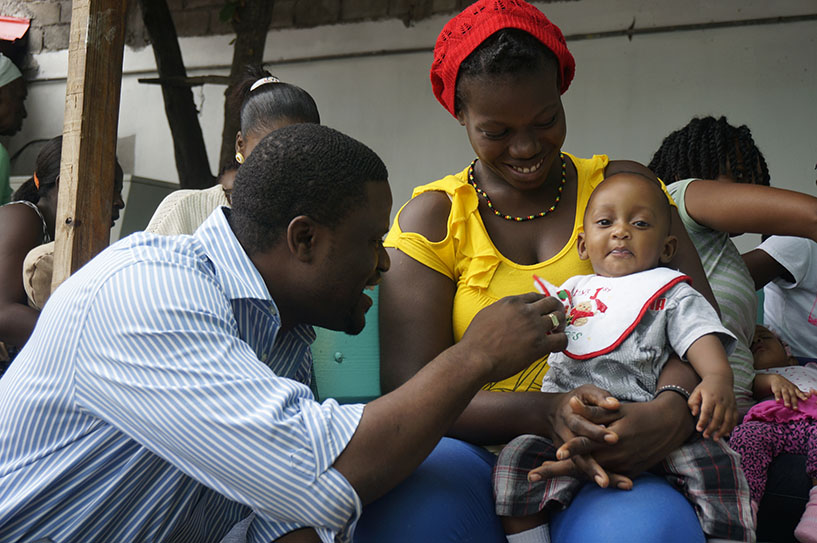Making the Link Between Results-Based Financing and Governance in Haiti’s Health System
Making the Link Between Results-Based Financing and Governance in Haiti’s Health System

Hurricane Matthew weakened Haiti’s already vulnerable health system when it struck last month, adding to the many challenges that the country’s government already faces in providing quality health services to its population.
Now, more than ever, Haiti needs strong leadership, management, and governance in the health sector to strengthen the system and ensure that its people have access to the care they need.
Even before the storm, the poorest nation in the western hemisphere was already facing political instability, the lasting effects of the 2010 earthquake, and an ongoing cholera epidemic, all of which seriously impacted the country’s health system.
USAID reported that as of January 2016, about 40 percent of the population lacked access to essential health and nutrition services, and there were only four health professionals per 10,000 people.
Effective leadership, management, and governance at all levels of the health system ensures that more people have access to quality care by enabling health systems to respond to emerging needs, enhancing work environments, and empowering health workers to lead health change.
Through the USAID-funded Leadership, Management, and Governance (LMG) project, MSH collaborates with Haiti’s ministry of health to better regulate, manage, and monitor the health sector. The project has worked with national government officials as they set the strategic vision, standards, and policy framework for achieving health goals.
One of the biggest achievements of this joint effort is the national results-based financing (RBF) program, launched in August 2014. RBF is a funding approach in which the government incentivizes providers based on their achievement of agreed-upon, measurable performance targets. By paying health providers based on the quantity and quality of provided care, RBF links the importance of increasing trust in the health care system with the necessity of adequately funding health activities.
LMG collaborated with the ministry of health to implement the program by creating regulatory documents and by coaching staff to manage the program and function as a cohesive unit. RBF is currently operating in 81 health facilities in seven of the country’s 10 departments, and going forward, LMG will work with the ministry to scale up the program.
“The contracting unit, strengthened by LMG support, has had to be tenacious, show determination, and make sacrifices in order to ensure the implementation of this important strategy,” said Dr. Johnny Calonges, the director of the ministry of health’s contracting unit.
Haiti achieved another milestone in health care regulation as a result of collaboration with the project on September 1, when the ministry of health launched the new Package for Essential Services. The package is a regulatory document that standardizes requirements for primary and secondary levels of care. This provides health leaders with information about services, drugs, resources, and infrastructure norms for health facilities, presenting them with a clear vision for improving the health of the people they serve.
In the wake of Hurricane Matthew, the Haitian government has asked MSH to conduct an assessment of health system infrastructure and recommend a course of action. MSH and the government of Haiti will continue to work hand-in-hand to build a stronger health system so that every Haitian can have the opportunity for a healthy life.